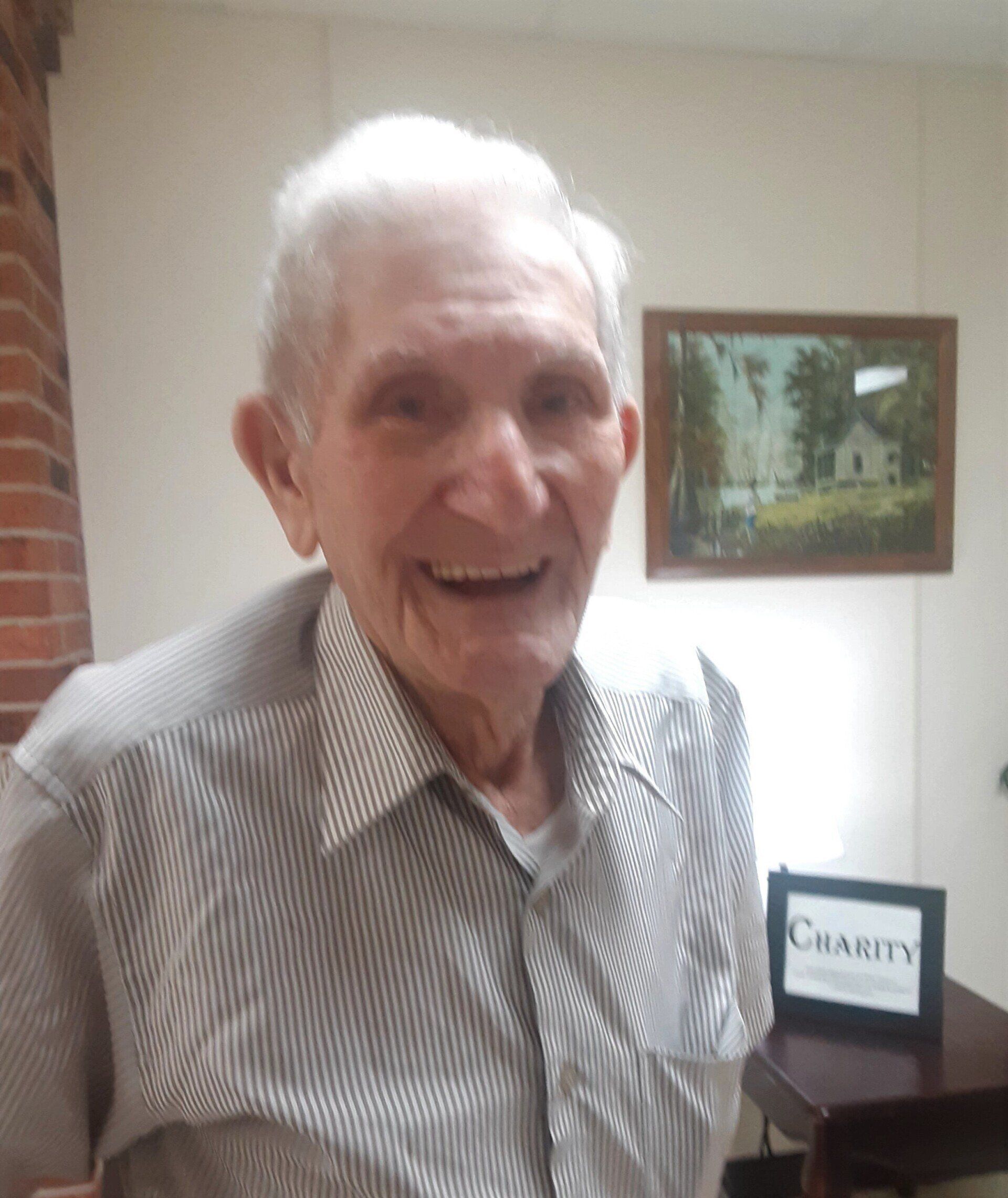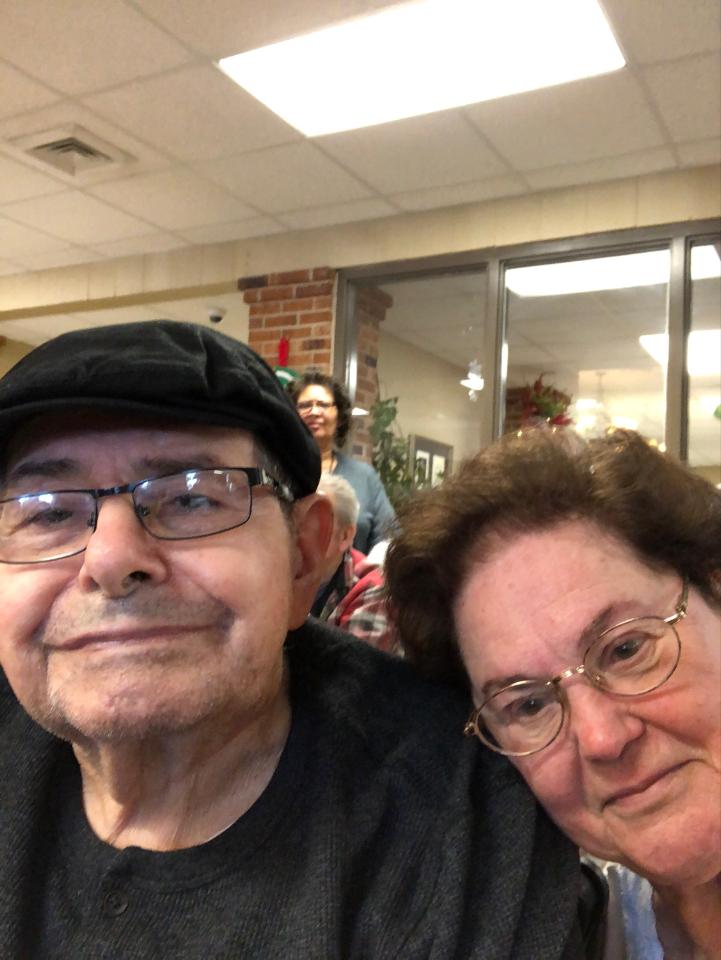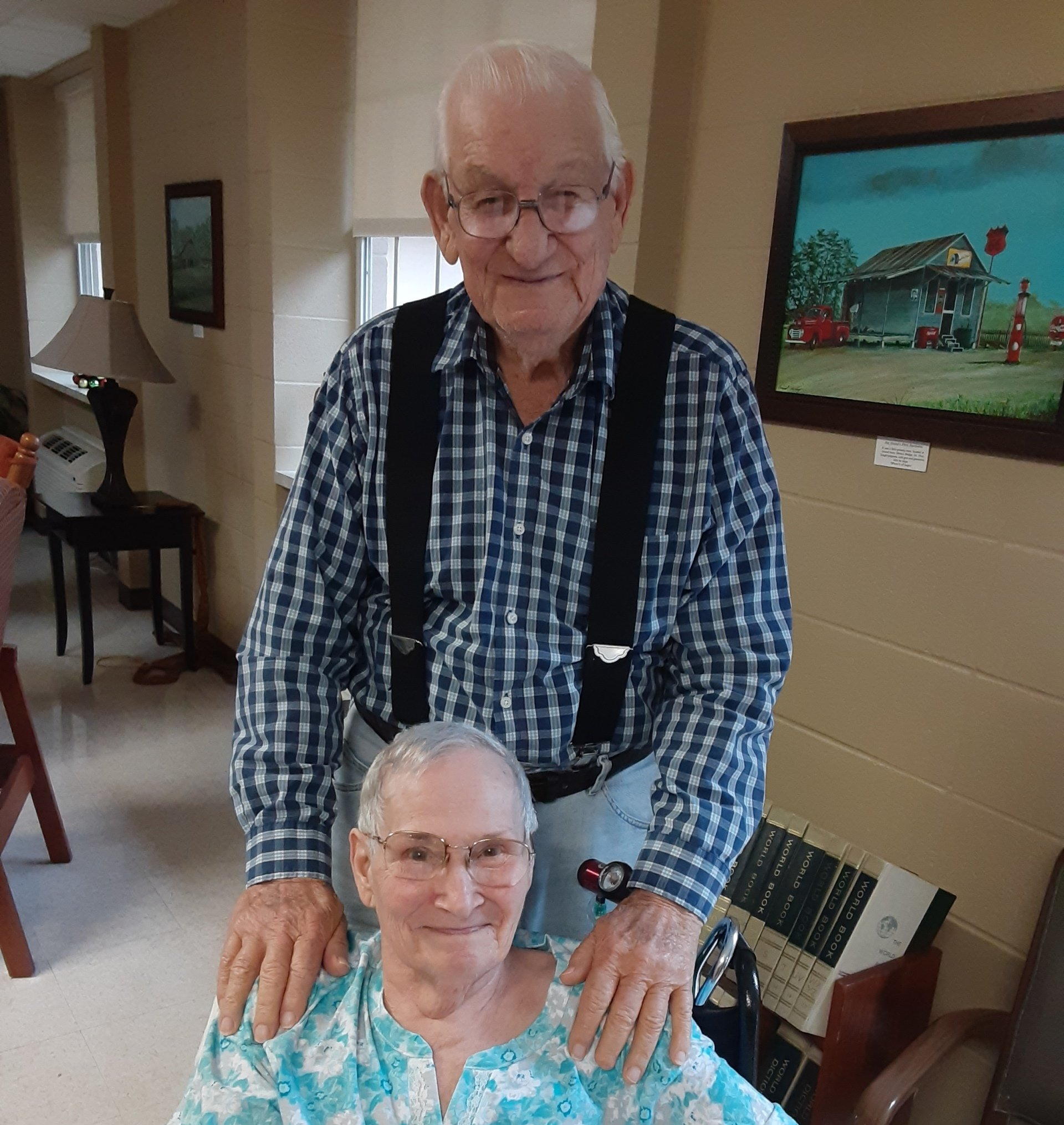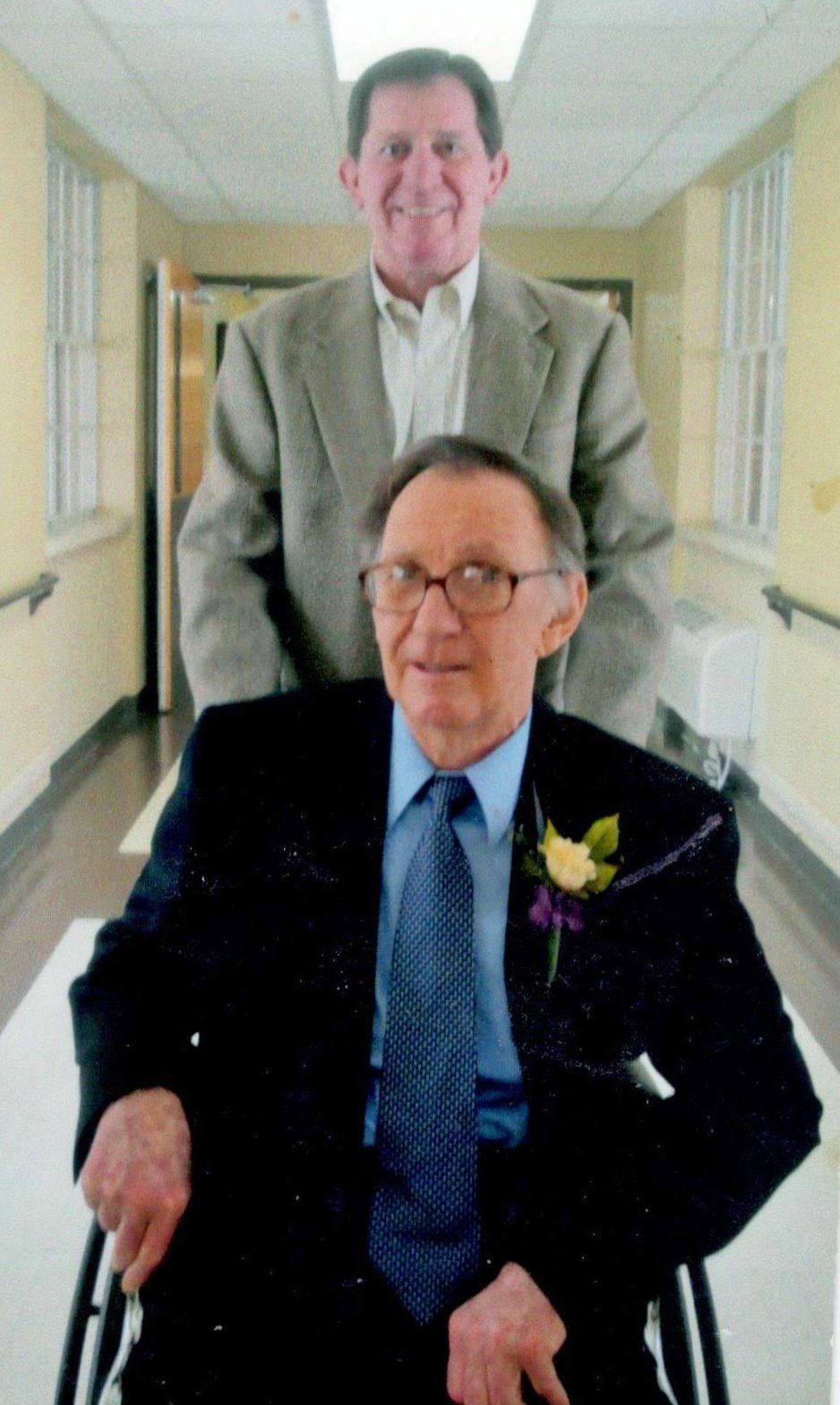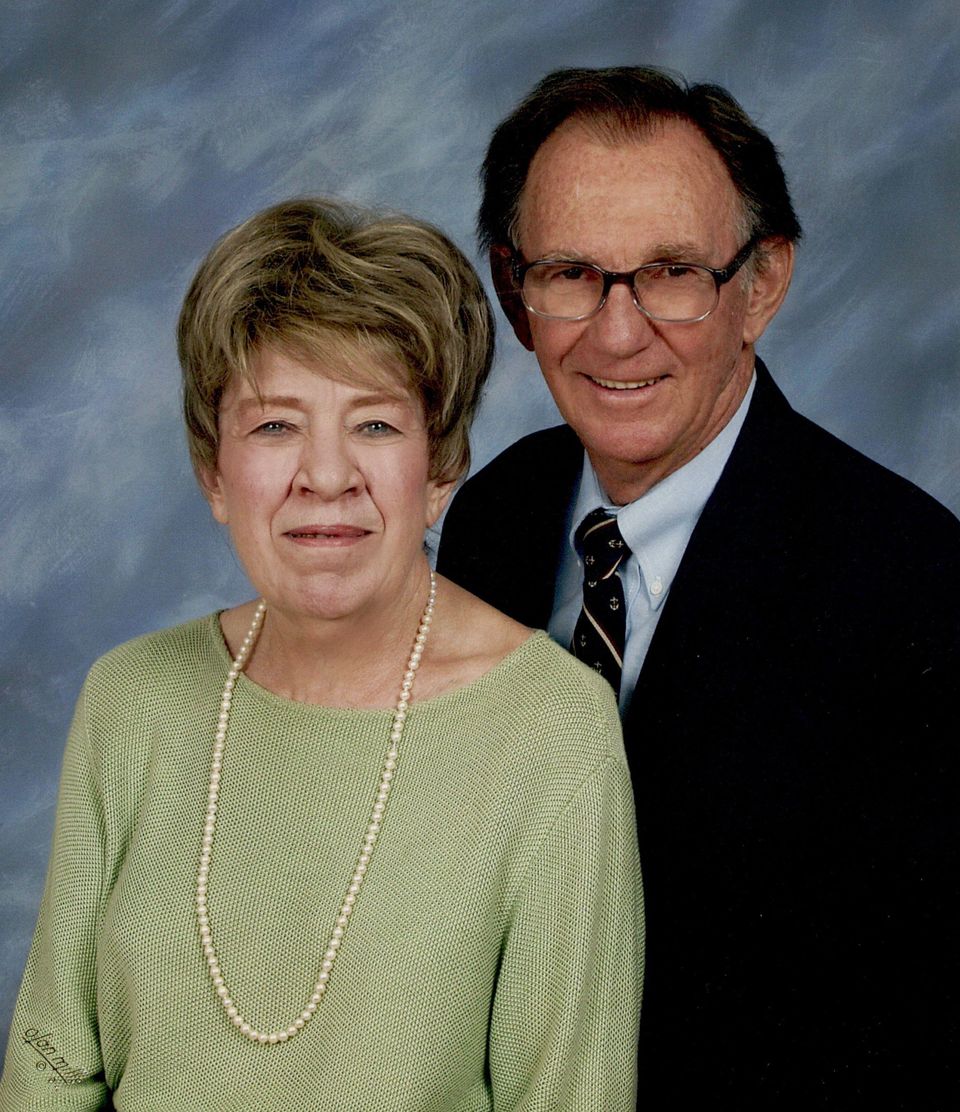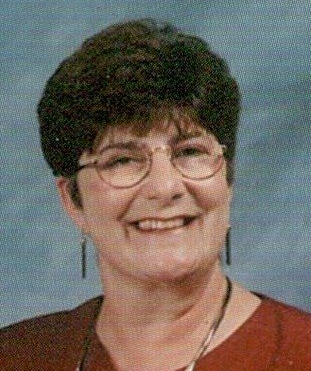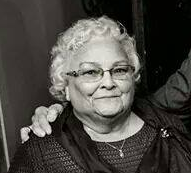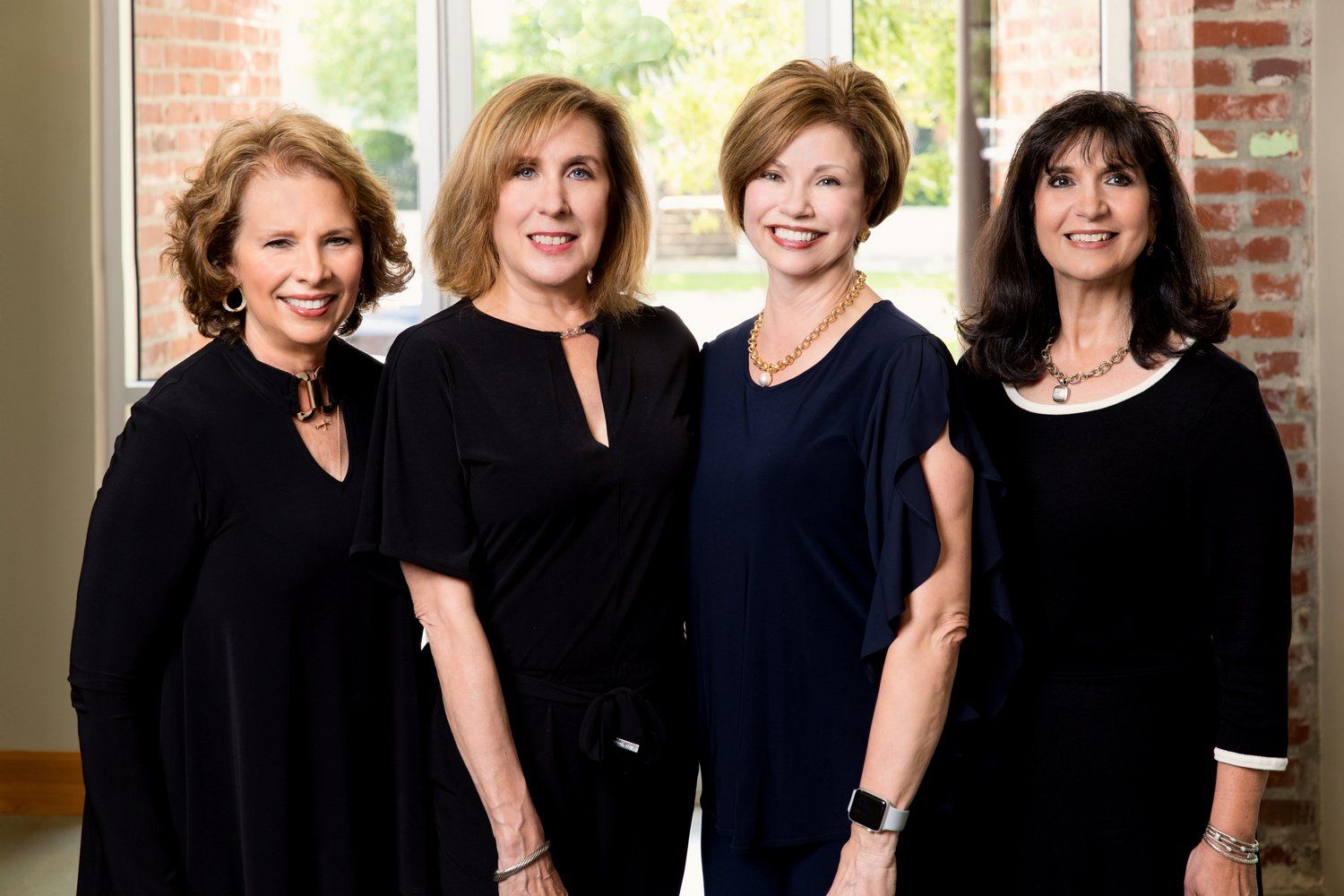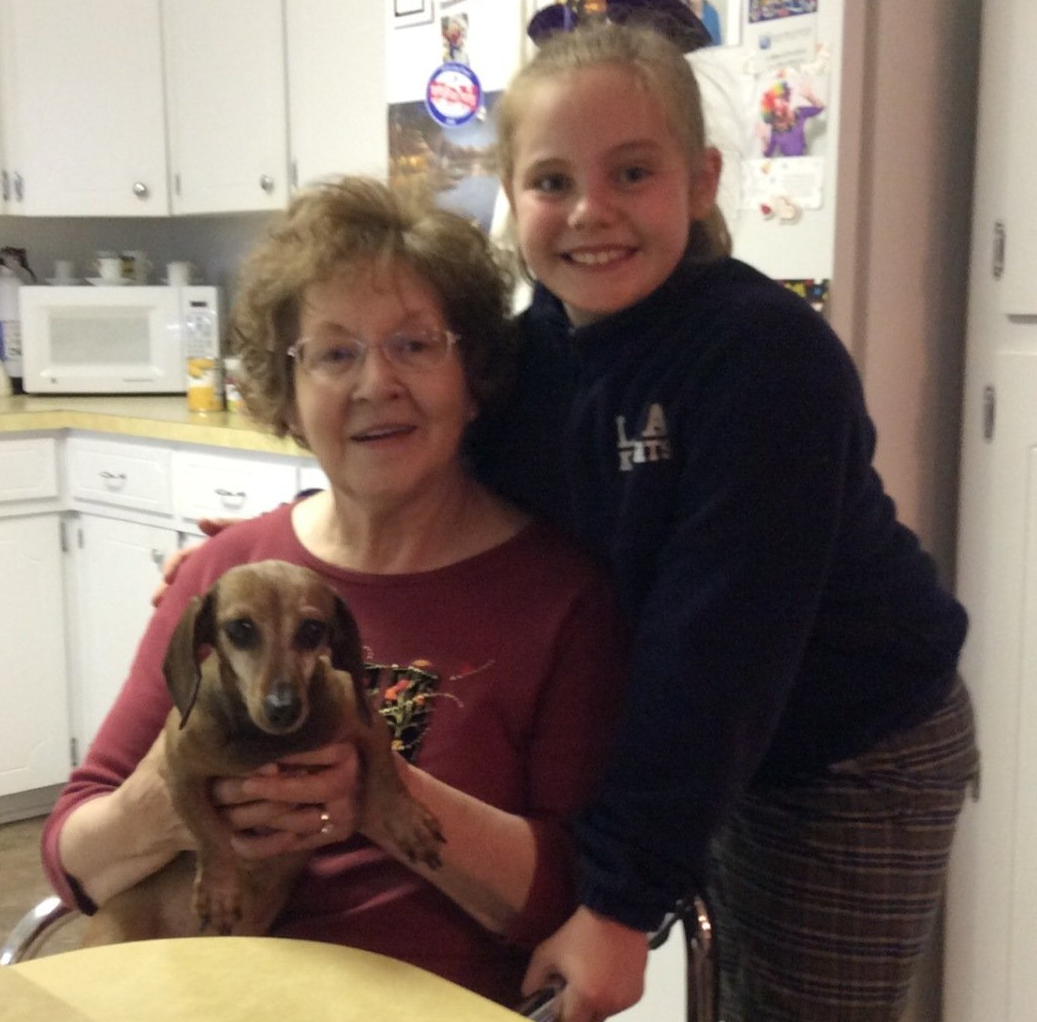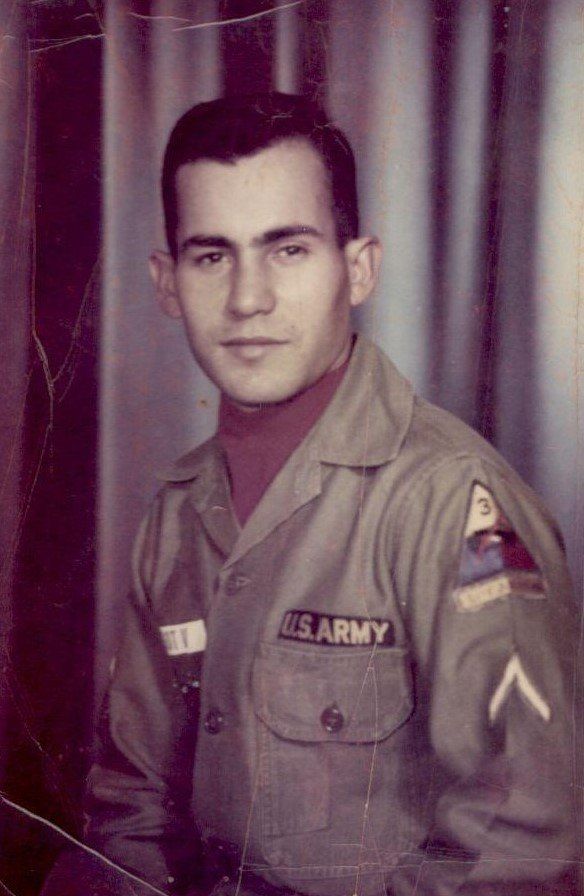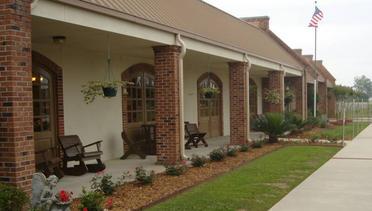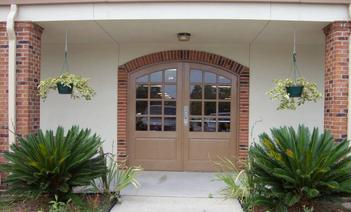Biography of John Herman LaGrange
As Christmas approaches, I wonder who will share memories of days gone by. I decide that I will visit with “Sue Sue,” Mrs. Anabell Richard. She worked with my Home Economics teacher, Mrs. Beverly Darby, for many years. Surely, those two created many holiday memories, especially when you consider Mrs. Darby had several children and I know Sue Sue had Cora and Michael. But, “Sue Sue” was not in her room. When I checked with her nurse, I learned that she was in the hospital. I pray she will be well soon.
I wandered around greeting staff and residents and found myself at Mike and Helen Stoute’s door. They are beaming with pride for a grandchild who will graduate from college. Helen shows me the beautiful clothes she has chosen for the reception. They are getting ready so I don’t linger. I wish them a Merry Christmas and as I am heading out of their door, I see Mr. John Herman LaGrange.
I met Herman one Saturday several years ago at the Town Market next to Myron’s when Frederick’s Lecole des Arts was hosting a class by Tony Adrien on how to limit our consumption of energy. Tony and his wife, Marie Bossard, live completely off grid. Herman participated in that enlightening class and I enjoyed a brief visit with him before Tony started.
Tony Adrien is the guy who is renovating the houses along the west bank of Bayou Teche on Front Street down from C.A. Guidry Produce and back of St. John Francis Regis Church. He is doing a wonderful job. It is great to watch the transformation of the rundown shacks into colorful little cottages. Tony also removed many dumpsters of trash along the bayou as he prepared the lots for the houses. I appreciate the improvement to our community.
I knew about Herman’s wife, Karen, a physical therapist. She had helped my husband’s nephew Darin Landry recover from a football knee injury. He has great respect for Mrs. LaGrange.
I entered Herman’s room and asked him if we could visit. Soon, I am listening to the very interesting story of his life.
Herman tells me:
“I remember in the 80’s when the oil industry was in the same condition or even worse than it is today. I had been working for Magabar when I was laid off. Fortunately, I had something else to go to. My father was Regis LaGrange. He was a good man and in his lifetime, he helped many people get started in making a living. Mainly, it was a farmer who needed to be advanced with seed and supplies to make a crop. Part of my father’s business was what Joe Darby’s company became. Many in this part of south Louisiana have heard of or remember the Regis LaGrange Store. In addition to the general merchandise store, my father had a large farm. When I was laid off, I became the manager of the farm.”
My wheels are turning fast as I tried to capture all of Herman’s words! And, I am also remembering my Dad, Clarence Arnaud, frequently spoke of Mr. Regis LaGrange. He called him “Ti Nonc.” Regis LaGrange was the brother of my father’s grandmother, Marie Emelie LaGrange, Mrs. Jean Marco Arnaud who lived next door to Jeanne and Antoine Stelly on Highway 31 in Arnaudville. I feel sure that my Dad was one of those who would have needed help from Mr. Regis LaGrange. I re-focus writing as fast as I can.
Herman continues:
“My mother was Louise Thibodeaux LaGrange from Poche Bridge. My mother was an excellent cook. Her chicken fricassee was my favorite. That gravy served on hot rice was delicious!
“She also worked in our store. Later, my sisters, Gladys, Mrs. Laurent Laporte, Laurie Beatrice, Mrs. A.D. Durio and Genevieve, Mrs. George Scott, worked in my father’s store.
“I was the only boy in the family. My antics were not always appreciated by my sisters and I think that is why my high school days were spent in a military school.
“In the beginning, my father said that a good day was when he and my mother made $4. During the Depression, a good day was when they made $1!
“French was the first language of my father and mother and I can also speak French. Many Cajun men used their French language in Europe during the war.
“In 1949, my parents built a modern home. My sisters also built their own homes near my parent’s home. In later years, after my parents were deceased, Karen and I occupied the family home. We lived there together until Karen died of cancer. I lived on in the family home until my health declined and I became a resident here at J.M. Morrow Memorial Home.
“My father served on the Farmers and Merchants Bank Board. When he retired, I replaced him. That was a very good learning experience for me. That and attending SLI, now the University of Louisiana at Lafayette, and earning a degree in Agriculture, helped shape my life. Of course, serving three years in the Air Force was also very important.
“In time, the family store was sold to Russell Robin. The Russell Robin family tore down the original building and built what is now Russell’s Food Center on Main Street in Arnaudville.
“These days, it is enjoyable for me to visit with J.C. “Nin” Tauzin. He flew F86’s in Korea. He was up against Russian Migs in the Cold War. J.C. says: ‘The Migs were faster than F86’s and when you have a Mig on your tail, you have to depend on the fact that the F86’s are more maneuverable.’
“J.C. and I use to go out on Saturday nights. What fun we had as young men.
“Now, I fear that we have seen the best years of our country. As I think of Greece defaulting on bonds and that the U.S. Government just sells more bonds to support our efforts, the future is not bright. We have to pay back all of those bonds someday. When you consider Russia and China, our country seems to be in big trouble.
“I enlisted in the military and because of my education, I went in as a Second Lieutenant. I was assigned to a radar base near Bangor, Maine, where we watched for Russian bombers. It was the 765th ACNW, ‘Aircraft Control Warning Group.’ Thankfully, the radar site was quiet during my time. It was our job to monitor the sky for incoming bombers. If necessary, two F89 fighter planes could be sent to intercept whatever the Russians would send our way. The Cold War was very real! The Russians had nuclear bombs and the capacity to deliver those bombs. To defend ourselves, we also had developed bomb. If it became necessary, two B29 bombers were used to drop our bombs. My roommate in college, George Nicholas from Melville, was a bombardier and he verified the situation we were in. He was a radar operator and part of the defense system of our country. But, make no mistake. The situation our country was in was very serious. That is why it is so important to have competent leadership in Washington. Americans need to take the privilege of voting very serious. It is important to realize how close we came to a nuclear war during the Cold War. That was what I was facing at that radar site.
“Coming home in 1958, I went to work on the Gulf Coast where I served as an oil mud engineer for Magcobar. It was like a paid vacation. The seaplane took us to the Intracoastal Canal. We visited 3 or 4 rigs where we analyzed mud and then we were back at about 3 p.m. We could go out every night.
“I had bought a new white GMC pickup truck about that time. I asked my friend Lucien Hebert if his girlfriend might have a friend I could date? That is how I met my wife. Karen was from South Dakota. As a physical therapist, her friend, Lucien’s girlfriend, knew Karen could find work in her field in south Louisiana. She had encouraged Karen to move in the area. Over the years, Karen developed a real appreciation for the people of south Louisiana. Yes, a blind date helped me find a good person to be my wife. Karen and I lived in a house on my father’s farm. When I was laid off by Magcobar, the natural thing to do was to take over the managing of the family farm.
“A.D. Durio, my brother in law and fellow resident here at J. Michael Morrow Nursing Home was the mechanic on the farm. He was also a plumber and that is how my sister Laurie met him. I learned so many things from A.D. He is very important to me and has been a helpful partner. We were a team! I like to have a backup to everything. You have to have an escape route. Working on the farm, I learned I had to have a backup to every piece of equipment. A.D. was the same way. If something broke, he’d buy two, for sooner or later, the next one would break!
“I met Percy Hebert here at the nursing home. Percy and I have become good friends and have remained close. I learned many things from him and to this day, he is still sharing important information about the oilfield. He worked for Frank’s Casing Crew.
“One of the very enjoyable things I did during my life was buy an airplane. It was a Cherokee. The registration number was Cherokee 477. I learned to fly it and Karen also took all the courses. Although she never got her pilot’s license, we were both confident that if something happened to me when we were flying, she has the ability to take over. I never got the instrument training but I had the capability necessary to fly. We flew to Springfield, Missouri, and Dustin, Florida. We flew right over the Gulf of Mexico for landing.
“Our farm had horses and around 500 head of Brangus cattle. A Brangus is a hardy breed of beef, a cross between an Angus and a Brahman. At one point, it became necessary for us to move about 300 heifers up to the front of the farm. I rode horses and was comfortable doing so. Karen was not but in time, she learned to ride. Of course, we were conscious of expenses. Trucking could eat into our profits so Karen and I decided that we could train the cattle to recognize our voices. Using our intellect, we outsmarted those cattle. Mounted atop horses and making the sounds we had used each time we fed them, the heifers followed us. It was a big accomplishment for us to move the heifers. I remember the whole farm pastures were planted in Dallisgrass.
“Karen and I had one son. We named him ‘Rene.’ When he grew up, he helped me on the farm and he was very capable at excavating and handling the heavy equipment. It was my plan to keep the farm going for him. We were devastated when he was killed. The guy who shot my son is in jail. That event was extremely difficult for Karen and I. For Karen, it changed her life forever.
“I enjoyed traveling. While working for Magcobar, I traveled to Nicaragua and Costa Rica. I have been to North and South Dakota. I’ve lived an interesting and a good life.
“Now, with Parkinson’s, I am restricted. Parkinson’s has slowed me down. My hands started shaking. It was an intermittent problem. I learned that this was a common symptom of Parkinson. Now, I spend my days visiting with friends and relatives, listening to music and keeping up with the changes in our world by watching TV.
“But, Greece, the New York banks, Russia and China make me a little pessimistic about our future.
“The best times of my life were my Air Force days, flying my own plane, my wonderful marriage and farming. From my father, I learned to help people. I was amazed at the number of people who came to his funeral. Over and over again, they reminded me how Regis LaGrange had helped them.
“Now, I am the one who requires help. My nephew Paul Laporte and his wife, Sis, are very good to me. They, along with the staff at J.M. Morrow Nursing Home, provide me with excellent care.”
As if on cue, Paul walks in and greets us. He hands a newspaper and points out an article that he feels will interest his uncle. Then, Paul picks up a hair brush from the nightstand and lovingly brushes Herman’s hair. He doesn’t stay long because he wants us to continue our visit. He promises Herman he will return soon.
In 2000, Jerry Richard, a son of Lawrence and Wilma Miller Richard, approached me about working with him to establish a nonprofit Foundation to work toward canonizing Nonco Pelafigue. The Auguste “Nonco” Pelafigue Foundation was incorporated in June 2012. I wonder if Herman knew Nonco. He answered that he does remember him. He didn’t remember the meaning of all of the plays but remembers that Nonco put on lots of plays. Once, Herman had the role of Jesus Christ. “I have had such luck all of my life,” he says. “I remember that I had no lines in one of the plays. I just hung on the cross like Jesus.”
I thank Herman for the visit and look forward to coming back to read his story to him for his approval.
On New Year’s Eve, I make a return visit to Herman’s room. Sis is there with him and she helps him with his shoes and to move from his bed to a chair. I read his story and he dictated the changes he wanted to make. It is a pleasure to get to know John Herman LaGrange.
Around Our Home Away From Home, Our Stories
